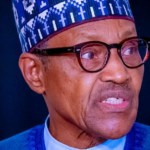President Muhammadu Buhari repeated a positive trend that began in 2019 with the presentation of the 2021 budget to the National Assembly last week.
With this step, there are hopes that the N13.1 trillion budget should enjoy quick passage in the National Assembly and a higher percentage of implementation by Ministries, Departments and Agencies (MDAs).
The 2020 budget was passed well in time by the National Assembly for its implementation to commence from January of this year, an equally positive act for which the parliament received accolades from across the country.
All things being equal, the 2021 budget should lead to the completion of many infrastructural projects and boost local production of goods and services.
In the 2021 budget, what comes out like a sore thumb is its deficit, put at N5.2 trillion, about 40 per cent of the budget. Though this amount is 3.6 per cent of the Gross Domestic Product (GDP), the fund involved is quite alarming because it shows an increase in the country’s debt profile at a time when revenue had dipped and the Naira has wobbled and devalued without any light at the end of the tunnel.
As at the time Buhari took over as president in 2015, the country’s debt stood at about N10.43 trillion, but as at June this year it had climbed to N25.28 trillion, and if all the projected loans in the 2021 budget are sourced, the country’s debt profile could hit N30 trillion.
Though economists have argued that it is not wrong for the country to borrow in order to finance infrastructural projects, it is feared that debt-servicing could cripple the system. For instance, much of the 2020 revenue has gone into debt-servicing.
This is compounded by the heavy non-debt recurrent expenditure put at N5.7 trillion, some 43.5 per cent of the budget. This shows that government’s payroll obligation is on the increase, clearly obliterating hopes that any drastic step would be taken to right-size or streamline the civil service. In the history of the country’s budget, the civil service has consumed much of the revenue, leaving very little for capital projects and other services.
It is good that revenue from oil is put conservatively at $40 per barrel, considering the fact that COVID-19 has kept production low in countries that patronize Nigeria’s crude oil. However, there is no clear evidence of government’s preparedness to increase non-oil export.
For all indications, government will depend largely on Customs and Excise duties, Valued Added Tax (VAT), Company Income Tax, and other independent revenue sources that have put tremendous pressure on Nigerians. As a result of the low level of local production, ordinary Nigerians bear the burden of tax payment, as taxes on bank transactions with diverse codes and local purchases drain the meagre resources of low-income earners.
As it stands, the 2021 budget, like this year’s budget, is faced with three challenges. There is the revenue problem, as income projection is not very bright. There is the expenditure problem, as the civil service would gulp more than the capital expenditure. There is also the debt problem, as the budget deficit is more than three per cent of the GDP, prescribed in the Fiscal Responsibility Act (FRA).
This shows that the 2021 is a spending-spree budget, which should not be so under the circumstances Nigeria has found itself. This is the time for fiscal discipline. This is the time to enact policies that would boost local production and reduce import. The budget should be cleaned up to ensure that junks that are dumped in the country from China and other countries are removed from it.

 Join Daily Trust WhatsApp Community For Quick Access To News and Happenings Around You.
Join Daily Trust WhatsApp Community For Quick Access To News and Happenings Around You.


